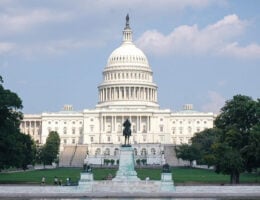On 12 May 2025 the newly issued Criminal Division White-Collar Enforcement Plan, the Head of the US Department of Justice (DOJ)’s Criminal Division, Matthew R. Galeotti, set out the Department’s priorities for corporate criminal enforcement under the new Administration and issued a number of updated policy documents.
These changes affect the Criminal Division’s Corporate Enforcement and Voluntary Self-Disclosure Policy, its policy on the Selection of Monitors (memorialized in the Memorandum on Selection of Monitors in Criminal Division Matters, and the Whistleblower Awards Pilot Program.
On February 10, 2025, President Donald Trump signed an Executive Order (“Order”) directing a 6-month moratorium on the enforcement of the Foreign Corrupt Practices Act (FCPA), while the Attorney General revises Department of Justice (DOJ) policies and guidelines governing FCPA enforcement. The Order instructs that these changes be made in the interest of promoting US companies’ ability to compete in foreign markets. While the Order introduces uncertainty for the future of FCPA enforcement, companies are advised to stay the course on compliance and exercise caution when considering any shifts in compliance practices and resourcing in the near term.
A recent memorandum from Attorney General Pam Bondi signals a potential shift in the Department of Justice’s FCPA enforcement priorities. According to the memorandum, FCPA enforcement should prioritize foreign bribery linked to Cartels and Transnational Criminal Organizations (TCOs), potentially altering the landscape of white-collar corporate enforcement. While traditional FCPA cases will likely continue, the new directive grants local US Attorneys’ Offices greater latitude in conducting FCPA investigations touching on Cartels and TCOs.
On 20 January 2025, the first day of his second term, President Trump revoked Executive Order 14110 on Safe, Secure, and Trustworthy Development and Use of Artificial Intelligence (“Biden Order”), signed by President Biden in October 2023. In doing so, President Trump fulfilled a campaign pledge to roll back the Biden Order, which the 2024 Republican platform described as a “dangerous” measure. Then on 23 January 2025, President Trump issued his own Executive Order on AI, entitled Removing Barriers to American Leadership in Artificial Intelligence.
In a landmark decision on July 18, 2024, Judge Paul Englemayer of the Southern District of New York dismissed most charges in the SEC’s enforcement action against SolarWinds and its CISO, Timothy Brown. The court ruled that cybersecurity controls are not part of a company’s “system of internal accounting controls” under Section 13(b)(2)(B)(iii) of the Exchange Act, dismissing these claims. However, the court upheld charges that SolarWinds and Brown misled investors with public statements about their cybersecurity program. This case, stemming from the SUNBURST attack, highlights the importance of detailed risk disclosures and accurate public-facing statements on cybersecurity.
In Snyder v. United States, the Supreme Court, in a 6-3 decision authored by Justice Kavanaugh, significantly limited the federal statute criminalizing gratuities in state and local jurisdictions. Snyder, a mayor, awarded a USD 1.3 million contract and received a USD 13,000 payment from the benefiting company. The Supreme Court ruled that the relevant statute, Title 18 section 666, applies only to bribes paid or promised before an official act, not after-the-fact gratuities.
Federal regulatory agencies have prioritized enforcement efforts that target the mishandling of data by companies that store and monetize large amounts of personal or sensitive information. This issue cuts across multiple regulatory areas which has prompted increased coordination between federal agencies. Notably, on March 26, 2024, the US Federal Communications Commission, Consumer Financial Protection Bureau, and the Federal Trade Commission, publicized a coordinated effort to increase their technological capabilities to address privacy and competition concerns related to the use of data.
While not new, AI is one of the key drivers of change and could boost productivity and cut costs. The use of distributed ledger technology is creating new products and services such as central bank digital currencies that could bring the unbanked to the financial mainstream. And the use of biometrics authentication promises to enhance the security available to users. While quantum computing remains beyond the next decade, it could have wide-ranging benefits to financial institutions but also leave the sector exposed to a higher level of cyberattacks.
On Tuesday, 23 January 2024 we are hosting an in-person client event in our New York office on Generative AI: Harnessing the Power and Mitigating Risk. The program includes an exciting in-house counsel panel featuring key speakers from Calix, Wolters Kluwer and Tiffany & Co. We’ll also hear from a cross-discipline Baker team who will discuss legal and regulatory considerations and mitigating risk when using Gen. AI,
Cybersecurity threats and risks are increasing each day, and cybercriminals are getting more sophisticated in their attacks. Companies need to ensure that their data security measures keep up with ever-changing regulations and that they have protocols in place to deal with cyber threats, breaches, and ransomware attacks. Retail brands recognize that in an increasingly connected world, cybersecurity should remain a top priority.








